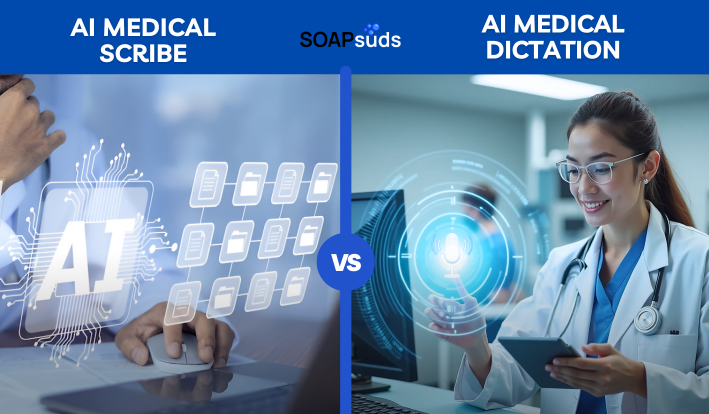How to Make AI Ethical in Healthcare
SOAPsuds team
Published: 1/21/2025
SOAPsuds team
Published: 1/21/2025

A doctor’s day can be consumed by paperwork for up to one-third of their time...

The dental field is on the verge of a major transformation, with AI-powered solutions...

Online medical transcription services provide healthcare professionals with a convenient and efficient way to convert...

Meet Mark, a 51-year-old man admitted for a COPD flare-up. During his week-long stay, he...

EHRs have greatly improved the modern healthcare system – providing easier access to patient data...

Before we explore why "progress notes" are essential, it’s important to first grasp the overall...
Clinical Notes
SOAP notes
DAP notes
AI medical notes